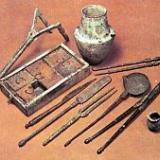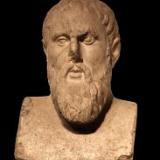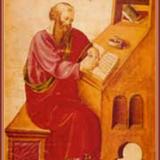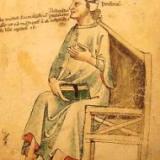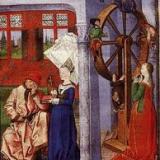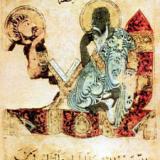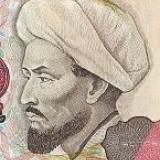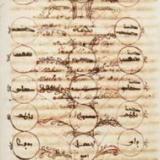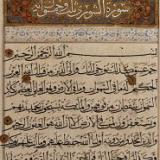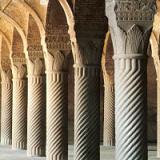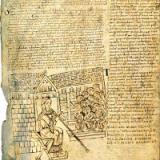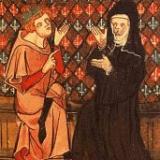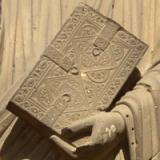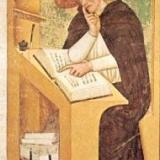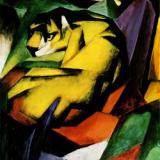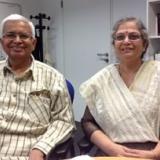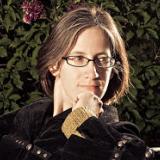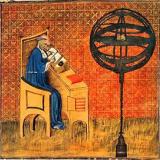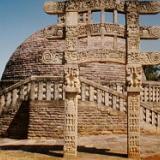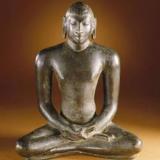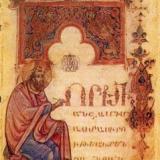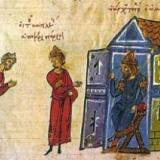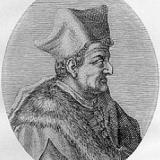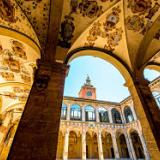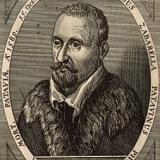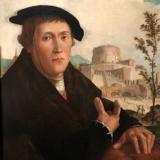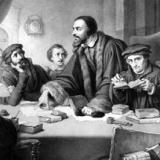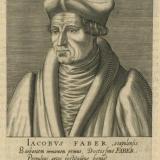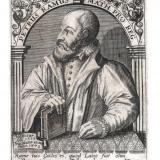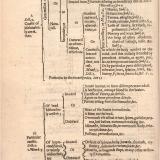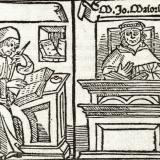Logic
Posted on
Peter discusses Aristotle’s pioneering work in logic, and looks at related issues like the ten categories and the famous “sea battle” argument for determinism.
Posted on
Peter arrives at the most influential of the Hellenistic schools, the Stoics, focusing on the early school from Zeno to Chrysippus, and on Stoic innovations in logic.
Posted on
Peter looks at the history of Aristotelianism up the time of the Roman Empire and the beginning of commentaries on Aristotle's works.
Posted on
Porphyry fuses Platonism with Aristotelianism, exploring Aristotle’s logic and Plotinus’ philosophy. He also finds time to argue for vegetarianism.
Posted on
Boethius ushers in the medieval age with expert works on Aristotle, subtle treatises on theology, and the Consolation of Philosophy, written while he awaited execution.
Posted on
A group of mostly Christian philosophers transpose the practices of antique Aristotelian philosophy to 10th century Baghdad.
Posted on
Peter begins to look at the systematic rethinking of Hellenic philosophy offered by al-Fārābī, focusing on his logic and metaphysics.
Posted on
Suhrawardī, founder of the Illuminationist (ishrāqī) tradition, proposes a metaphysics of light on the basis of his theory of knowledge by presence.
Posted on
Logicians ply their trade across a millennium of Islamic history, considering such issues as the status of logic itself and the Liar Paradox.
Posted on
The controversial jurist Ibn Taymiyya sets forth an originalist theory of law and a searching criticism of the philosophers’ logic.
Posted on
Ill-tempered debates in early modern Iran, as we examine the rivalry between Dawānī and the Dashtakīs at Shīrāz.
Posted on
Little-known authors prepare the way for scholasticism with glosses on logic, metaphysical debate, and a poem about a cat.
Posted on
Peter Abelard and Heloise prove themselves to be fascinating thinkers as well as star-crossed lovers.
Posted on
The terminist logicians William of Sherwood and Peter of Spain classify the various ways that language can relate to the world.
Thanks to Catarina Dutilh Novaes for help with this episode.
Posted on
Robert Kilwardby is infamous for his ban on teaching certain philosophical ideas at Oxford, yet made contributions in logic and on the soul.
Posted on
Was medieval logic "formal"? Peter finds out from Catarina Dutilh Novaes.
Posted on
The Nyāya-Sūtra inaugurates a tradition of logical and epistemological analysis.
Posted on
Gautama and his commentators tell us how to separate good inferences from bad ones.
Posted on
The First Family of Indian Epistemology joins us to discuss the theories and later influence of the Nyāya school.
Posted on
The scholastics discuss the ambiguity of terms, the nature of logical inference, and logical paradoxes, and play the game of “obligations.”
Posted on
Sara Uckelman soundly defeats Peter in the medieval logical game of "obligations."
Posted on
Bradwardine and other thinkers based at Oxford make breakthroughs in physics by applying mathematics to motion.
Posted on
Nāgārjuna’s four-fold argument scheme, the tetralemma (catuṣkoṭi).
Posted on
A discussion with Jan Westerhoff, an expert on the great Buddhist thinker Nāgārjuna, dealing with the notion of emptiness, the tetralemma, and Nāgārjuna's reception in India and Tibet.
Posted on
Peter speaks to Jack Zupko about John Buridan's secular and parsimonious approach to philosophy.
Posted on
Does the Jain theory of seven predications (saptabhaṇgī) land them in self-contradiction, or help them to avoid it?
Posted on
Dignāga’s trairūpya theory, which sets out the three conditions required for making reliable inferences.
Posted on
Graham Priest joins Peter to discuss non-classical logic and its connections with Buddhist patterns of reasoning.
Posted on
Peter King, Catarina Dutilh Novaes, and Russ Friedman discuss their approaches to medieval philosophy and its contemporary relevance.
Posted on
Eastern Christian philosophy outside of Constantinople, focusing on translation and exegesis in the languages of Syriac and Armenian.
Posted on
Katerina Ierodiakonou discusses Byzantine commentators on Aristotle, including Michael of Ephesus.
Posted on
Intellectual exchange between Christians and Muslims, and the later flowering of Syriac literature including the philosopher Bar Hebraeus.
Posted on
Lorenzo Valla launches a furious attack on scholastic philosophy, favoring the resources of classical Latin.
Posted on
The blurry line dividing humanism and scholastic university culture in the Italian Renaissance.
Posted on
Jacopo Zabarella outlines the correct method for pursuing, and then presenting, scientific discoveries.
Posted on
Rudolph Agricola, Juan Luis Vives and other humanist scholars spread the study of classical antiquity across Europe and mock the technicalities of scholastic philosophy.
Posted on
In a surprise twist, some Protestant thinkers embrace the methods of scholasticism, and even find something to admire in the work of Catholic authors like Aquinas.
Posted on
Jacques Lefèvre d’Étaples and Julius Caesar Scaliger fuse Aristotelianism with humanism to address problems in logic and literary aesthetics.
Posted on
Peter Ramus scandalizes his critics, and thrills his students and admirers, by proposing a new and simpler approach to philosophy.
Posted on
The methods of Peter Ramus sweep across Europe, winning adherents and facing stiff opposition in equal measure.
Posted on
The evolution of Aristotelian philosophy from John Mair in the late 15th century to John Case in the late 16th century.
Posted on
A discussion of the history and philosophical significance of scholasticism from medieval times to early modernity, and even today.

